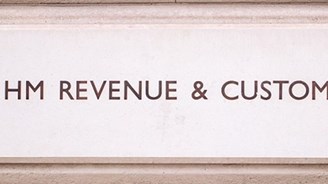Money Laundering and Due Diligence

A recent Tribunal case, TC05404: N Bevan Ltd, has explored the Customer Due Diligence Rules for accountants and illustrates the dangers of inadequate procedures.
The company appealed a penalty of £3,750 in respect of alleged breaches of the Money Laundering Regulations 2007. The company is a small firm which carries on an accountancy business but which is not supervised by a professional body and is therefore required to be registered with HMRC.
HMRC found that during period from 28 November 2008 to 3 November 2014 the company's procedures for customer due diligence did not fully meet the requirements of the Regulation 7, its procedures for ongoing monitoring did not fully meet the requirements of Regulation 8, its procedures for record-keeping did not fully meet the requirements of Regulation 19 and its procedures for risk assessing its clients and adopting a risk-based approach to its clients did not fully meet the requirements of Regulation 20.
The amount of the penalty had been determined by the application of HMRC's penalty framework which has two elements, a fixed starting penalty of £5,000 and an additional penalty which takes into consideration the client base that was exposed to money laundering breaches. The result of that calculation was that the penalty of £7,500 was the starting point but HMRC allowed a reduction of 50% as they found that the breaches occurred as a result of failure to take reasonable care and misinterpretation of the Regulations, rather than being deliberate.
The company did not accept that it had breached any of the Regulations, stating that its records in relation to anti-money laundering are based on the information provided by the electronic services provided for agents by HMRC in respect of the income tax and corporation tax affairs of the small number of clients for whom it provides its services. The company acts for clients whose background, character and activities it has been aware of for many years and it only takes on new work from individuals or companies who are connected with existing clients, normally by family connection.
The CCAB Guidance operates, in essence, as a 'safe harbour' in that if the company had complied with this guidance no breaches would be deemed to have occurred. The CCAB Guidance sets out comprehensive guidance as to what an accountancy firm might be expected to carry out by way of customer due diligence measures. In particular, the guidance deals with the need to identify and verify the client's identity using documents or information from reliable and independent sources and to identify the beneficial owner of the client, including understanding the ownership and control structure of the client and verifying, according to risk, the identity of the beneficial owner and obtaining information on the purpose and intended nature of the business relationship.
The guidance also emphasises that ongoing monitoring of the business relationship is required and the documentation concerning the relationship (including customer due diligence) is kept up to date.
The Tribunal found that the company had been unable to demonstrate that the extent of the customer due diligence measures it has taken are appropriate as it was unable to demonstrate what, if any, processes it has undertaken to identify customers or what ongoing monitoring it had undertaken because at no point had it made available to HMRC the customer files in which it says that information is recorded and which, it says, was subsequently recorded on HMRC's online tax agent system. In addition, the company had not provided any evidence that it had established and maintained appropriate and risk sensitive policies and procedures.
Consequently, the company's approach to record-keeping was not a satisfactory alternative to the clear guidance on these matters given in the CCAB guidance. Taking all of those circumstances into account, the penalty was calculated as £3,094.
The Tribunal concluded:
'This is a sorry outcome for NBL and one that could easily have been avoided had it not, for no good reason, ignored HMRC's warnings about the inadequacy of its policies and procedures and what it might do to address them.
NBL would be well advised now to read the CCAB Guidance and develop policies and procedures the take account of that guidance. If it has any difficulty in doing so, it should seek professional advice from many of the specialist compliance consultancies that are available. It should not discount the possibility that HMRC may make further visits in the future and the consequences could be extremely serious if by then NBL has done nothing to address the situation.
The appeal was dismissed.
You may also be interested in reading our recent blog on A Step Towards New Money Laundering Regulations.



